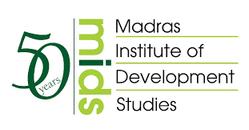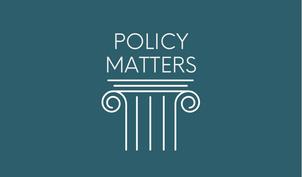









Time used to be when western sociologists and economists used to blame India’s population-burst for what they used to derisively dub as the ‘Hindu rate of growth’ in India in the decades after Independence. To them should also go the credit for making Indians believe in India, once the former identified that the nation’s ‘Demographic Dividend’ was a huge market for their products, especially in the footsteps of the Economic Reforms since the early nineties. That is to say, India had, and continues to have a huge population in the working, and earning age-group. Whatever the reason, the opening up of the economy, huge private sector investments in higher education and FDI investments in the Indian manufacturing and services sectors over the past decades have put money in the pocket of new generation youth with aspirations, both in terms of career and personal life. This, many want to believe, will continue forever.
But will it?
Going by the ‘Baby Boom Years’ in the US and the post-War recovery in Japan, those nations are now already past the prime for their youth. Like in those countries, the greater investment in public health since Independence and even more awareness and knowledge in successive generations in matters of healthcare and personal hygiene have pushed up the average age of mortality for both men and women, substantially and creditably so. But this one comes with its own economic burden, as unveiled by central and state governments wanting to devise new pension schemes, for instance, for their employees, as the financial commitment that stretched to decades after their retirement, has become a burden on the budgets.
This is only one factor. As some economists have been arguing over the past few years, for the youth-earnings to support governmental revenues and family incomes, they should first have jobs, especially in the organised sector. Going by estimates, the supply is not commensurate with the demand – and it has socio-economic and politicoelectoral consequences over the short, medium and longterms.
There thus can be no two ways about it other than for governments at the Centre and in the states to begin drafting a holistic national/regional policy for addressing the issues and concerns emanating out of the evolving situation, over which there is not much understanding. Maybe, the delayed national Census, originally due in 2021, could provide the opportunity and platform for the government(s) to evaluate the import on the future – and design policies and programmes that will mitigate the impress, as much on the individual as on the economy.
5:15 PM Registration & High Tea
6:00 PM Welcome Address
Gp Capt R Vijayakumar (Retd), VSM
Executive Director, Madras Management Association
Opening Remarks
Mr N Sathiya Moorthy
Convenor, Policy Matters - Chennai
Keynote Address
Mr Ramasundaram, IAS (Retd)
Tamil Nadu Cadre Programme
Special Address followed by discussion
Dr M Suresh Babu
Director
Madras Institute of Development Studies (MIDS)
Prof Mahalingam D
Assistant Professor
Bharathidasan Institute of Management
Q & A
Vote of Thanks 7:40 PM
7:45 PM
End of the seminar

With over 45 years of experience in various sectors, he has been a leader and a catalyst for change in both public and private sectors across different areas in India.
As a former Indian Administrative Service (IAS) officer of the 1979 Batch, he served in various capacities in the Tamil Nadu State Government and the Central Government. He was Joint Secretary at the Department of Commerce and CMD of four government companies, including TNPL, the second-largest paper manufacturer in India, and TIDCO, the promoter and largest shareholder of TITAN.
He has worked extensively in the public health sector: in the Family Planning Programme in the 1980s and the AIDS Control Programme in the 1990s. He worked with the World Bank to replicate across India the model he had developed and implemented in Tamil Nadu. This helped in containing India's HIV/AIDS problem at 0.5%, unlike in many other developing countries where AIDS devastated an entire generation of adults with infection rates in double digits.
After voluntarily retiring from the IAS in 2010, he joined the private sector as the CEO of Nagarjuna Oil Corporation Limited
He also advised several companies, such as Hyundai Motor India, IIFL, and Gamesa Wind Energy, on government relations and policy matters. He was President of Corporate Relations at Essar Group, one of the largest Indian multinationals. Most recently, he was President of Corporate Affairs at ReNew Power, India's leading renewable energy company.
Currently, he is advising Hero Future Energies.
He graduated with an MSc in Chemistry from Loyola College, Chennai (1976), and an MS in Applied Demography from the University of Southern California, Los Angeles (1991). He was chosen as a MacArthur Foundation Fellow in 1996 for his work in public health and has been a Fellow of the Institute of Directors since 2013.

Dr M Suresh Babu Director
Madras
M. Suresh Babu currently serves as the Director of the Madras Institute of Development Studies. He holds a Ph.D. from Jawaharlal Nehru University, New Delhi (2002), with his thesis focusing on "Competition, Barriers to Entry, and Productivity Growth in Indian Manufacturing Industries " He also completed his M Phil in Applied Economics from the same institution in 1994, where he explored the "Role of Industrial Sector in Indian Inflation." In 1992, he earned an M.S. in Development Economics from Pondicherry Central University, achieving the second rank in the university. His academic journey began with a B.A. in Economics from the University of Calicut in 1990. Suresh Babu's research interests lie in Applied Macroeconomics, Trade & Industrial Economics, and Development Economics. His extensive teaching and research career includes roles such as Professor (20182024), Associate Professor (2012-2018), and Assistant Professor (20112012) in the Department of Humanities and Social Sciences at the Indian Institute of Technology Madras, Chennai Prior to these, he was an Associate Professor at the Institute for Social and Economic Change, Bangalore (2010-2011), and an Assistant Professor at IIT Madras (20062010). He also served as a visiting faculty member at the Gokhale Institute of Politics and Economics, Pune (2005-2006), a Research Associate at the Centre for Development Studies, Trivandrum, Kerala (2001-2004), and a Lecturer at the Gokhale Institute of Politics and Economics, Pune in 2001.

Prof Mahalingam D
Assistant Professor
Bharathidasan Institute of Management
Prof. Mahalingam D holds a PhD in Business Administration with a focus on Managerial Economics from Arizona State University, W.P. Carey School of Business, USA, awarded in 2018. He also completed PhD coursework in Agricultural Economics at the University of California, Davis Additionally, he earned a Master of Science in Mathematics and a Master of Science in Applied Economics, both from the University of Idaho. His research interests encompass applied economics, international trade, industrial organization, and quantitative marketing
Prof. Mahalingam D has held several academic and research positions. He served as a Graduate Associate at W.P. Carey School of Business, ASU, from January 2018 to January 2021. Prior to that, he was a Teaching Assistant in the Department of Agricultural Economics at UC Davis from September 2016 to December 2017, and in the Department of Mathematics at the University of Idaho from August 2014 to May 2016. He also worked as a Research Assistant at the University of Idaho from August 2012 to July 2014 and as a Junior Research Fellow at the Global Agribusiness Research and Development Foundation, India, from August 2011 to May 2012.
Prof Mahalingam D has contributed to several publications, including articles in the Journal of Agricultural and Resource Economics and the Journal of Agricultural and Applied Economics. He has taught a variety of courses, such as International Trade, Applied Calculus and Statistics, Calculus I and II, Linear Programming, Managerial Economics, Applied Econometrics, Strategic Pricing, International Food Business Management, and Business Risk Management. His academic excellence has been recognized with numerous awards, including the University Graduate Fellowship at ASU, the James Schweitzer Memorial Scholarship, the Alumni Award for Excellence at the University of Idaho, and the Western Agricultural Economics Association Outstanding MS Thesis Award.

Mr N Sathiya Moorthy
Convenor, Policy Matters - Chennai
N Sathiya Moorthy is a policy analyst & political commentator, specialising in the study of India’s southern neighbours, namely, Maldives and Sri Lanka, and also on Indian politics and political systems, with particular reference to native Tamil Nadu. He has written extensively on these subjects, both as books and newspaper columns and commissioned articles.
Sathiya Moorthy is associated with major newspapers and TV channels, both in India and Sri Lanka and also headed the Chennai Initiative of the Observer Research Foundation since inception in 2001.
A veteran journalist and author, he is the convenor of ‘Policy Matters-Chennai’.



